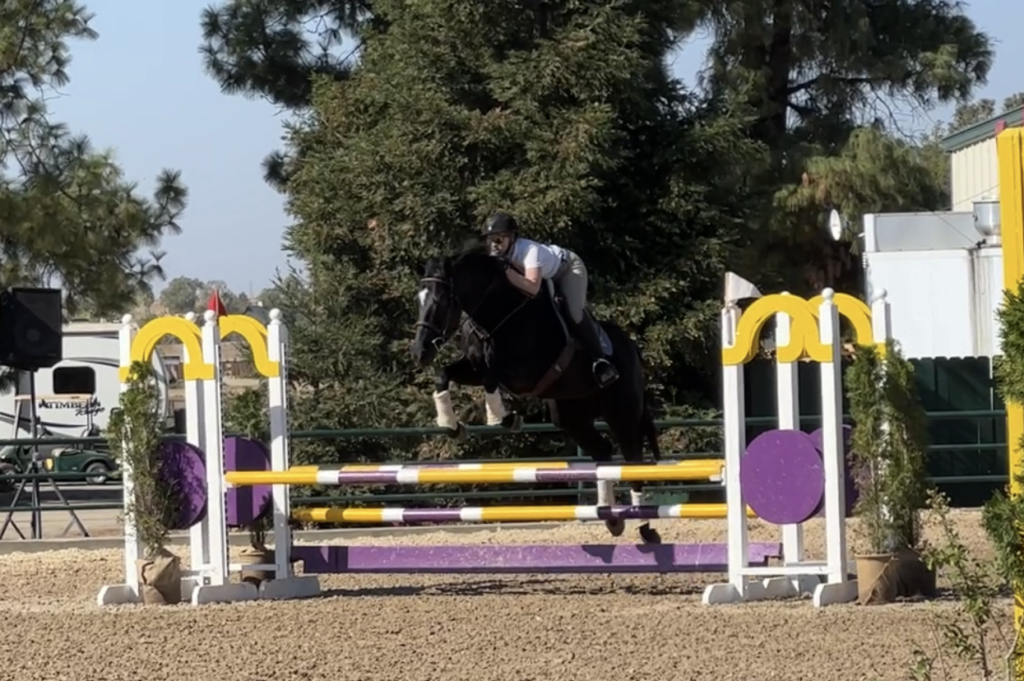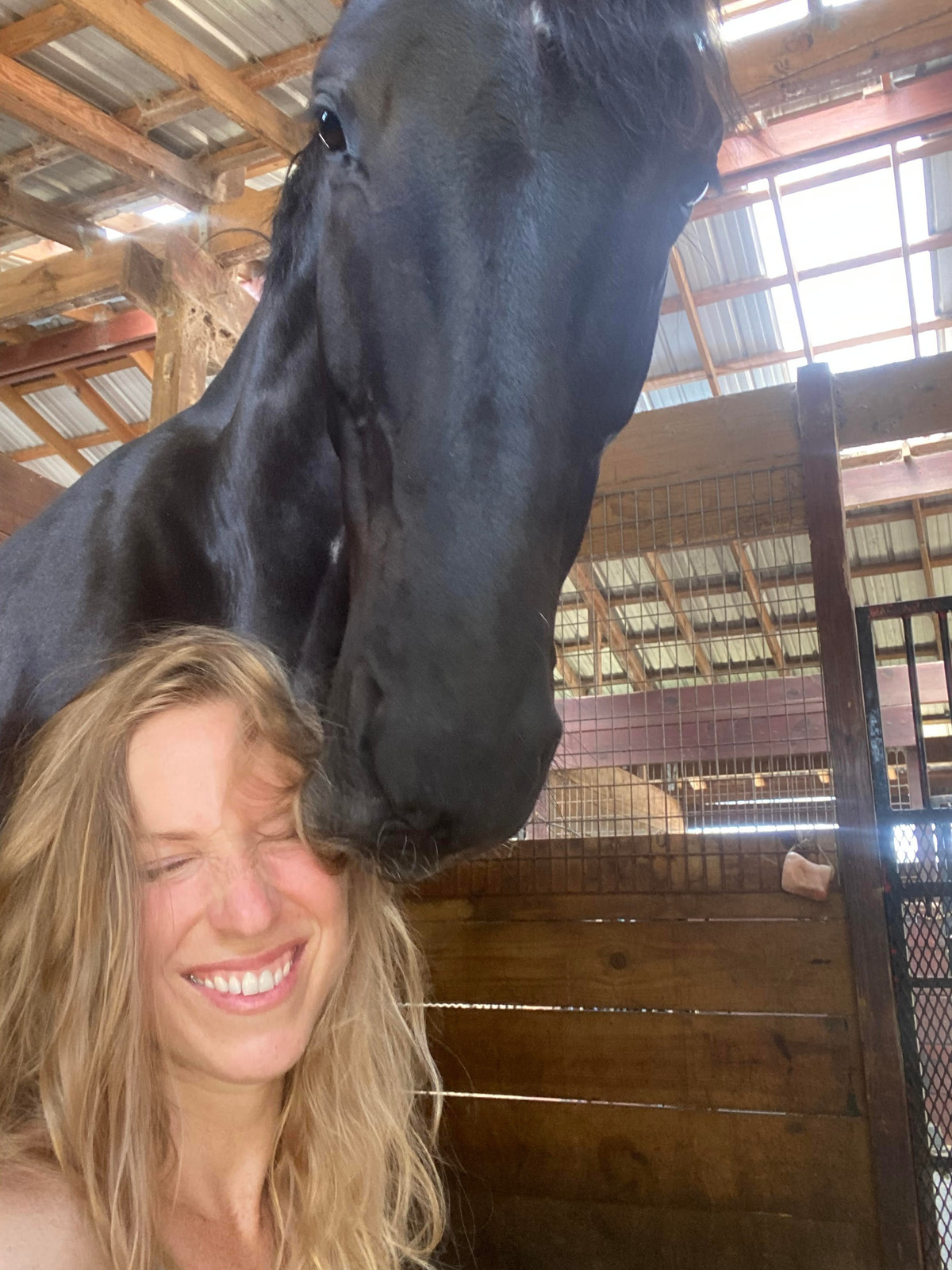
How intimidating, my first horse show in over 15 years! Of course I was excited to compete again after so long, but one thing I did not anticipate was the effect anxiety would have on my mental capacity. I really struggled with some crucial decision making once I entered the ring to start my jump courses. Should I whoa for the 5 stride or press up to the four? Which jump is next? Am I using too much hand? Is my pace too fast? too slow? or inconsistent? All of these thoughts faded into a murky hollow in my brain, and the first day I rode around as a complete passenger, just grateful to the horses I was riding for carrying me safely over the jumps. But how frustrating, why wasn’t I able to make the critical decisions necessary for good riding in front of the judge?
Maybe you have experienced something like what I was going through, which is known as “choking under pressure.” This is very common for most people, and occurs when we start overthinking and obsessively trying to control every little detail of our performance. In doing so, our brain shuts down in what is know as “paralysis by analysis.” Scientists have put a lot of work into trying to unravel the mysteries of why our brain works the way it does, and of course the reason behind my mental shut down is not a simple one.
The prefrontal cortex is the area in our brain which houses our working memory, which is any memory that we are currently thinking about or using. When I ride at home, I rely on this working memory to instantly react to the various stimuli constantly bombarding my senses. Unfortunately, when I entered the show ring I started to obsessively think about counting strides, the course design, my equitation, and so on, and these thoughts interrupted the function of my normal working memory. Rather than executing a flawless round, I chipped down the lines, jumped up the neck, and missed lead changes. My cortisol and adrenaline levels spiked and the emotional center of my brain, the anterior cingulate cortex, created a panic response. I remember walking out of the ring after my first class thinking, what just happened? I must do better than that!
Fortunately for all of us, there are many things we can do to counteract the stuporing effects of our body’s “choke” response under pressure. First and foremost is creating a practice environment to mimic that which caused the assault to our psyche. I personally can feel my nerves start to tingle when I know somebody important is watching me, and so I’m going to start bringing my gimbal (cell phone video gadget) to the ring with me anytime I ride at home, and tell myself that I am going to be sending this footage to a trainer I admire (or posting it to social media)! Not only will this help me to gain control of my nerves so that I am better able to recall my working memory, but it will serve as great practice material to review during my time out of the saddle.
Another great trick that’s been proven effective is to write down all the things you are anxious about before doing the activity which causes the anxiety. By writing down your fears, you get them out of the way so that your working memory can focus on the activity at hand. Understanding your personal psychology is obviously paramount in knowing the best ways to combat a panicked or nervous tick in your brain when you are under pressure to perform well. Many top athletes swear by positive visualization. This powerful tool is even used by physical therapists for victims who have suffered a stroke, because the same part of the brain is activated when you visualize yourself doing something, as when you actually do it.
The second day of showing I competed in jumper classes rather than hunters, which allows for riders to walk the courses prior to riding them. The courses are often more difficult with tight turns and bending lines, so I needed my brain to be functioning at top level. When I walked the course I visualized how I would carry over each fence, balance in each turn, and use my legs, seat, and hand for every phase of the ride. Come time to compete, I still made errors but I had a much easier time making and executing key decisions during the ride. I definitely think this was due in part to the positive visualization time I had given myself when I rode the course in my minds eye during the course walk.
After doing a bit of homework, I have a plan to better prepare myself for my next round of competition. In addition to the mental exercises I’ve already discussed, developing a pre-performance routine will also help calm my nerves. I am going to practice singing when I ride over jumps at home, and use the melody to maintain a steady rhythm through my course. Hopefully next time I compete, I can sing my catch phrase song, and let the familiarity of the song help to calm my nerves and keep my brain’s working memory activated and free from self-doubt or troublesome thoughts. Just don’t laugh if you hear me belting out the lyrics to some Disney song in the warm-up ring during my next show!




Leave a Comment